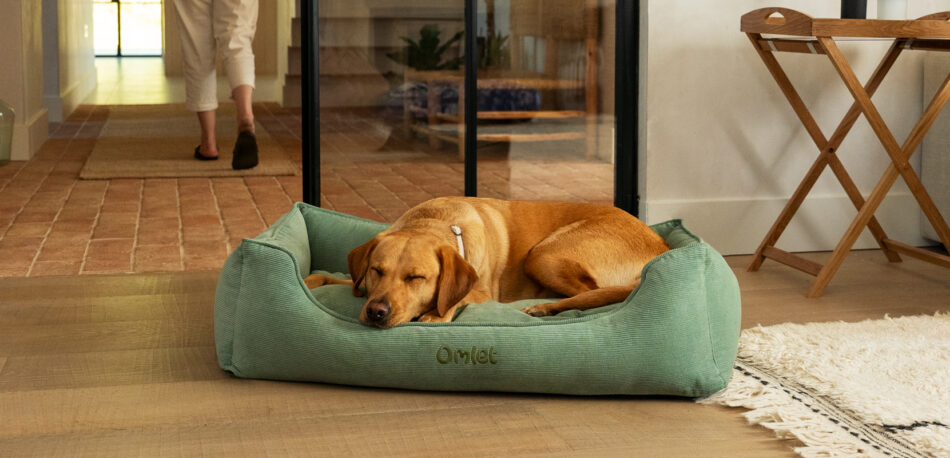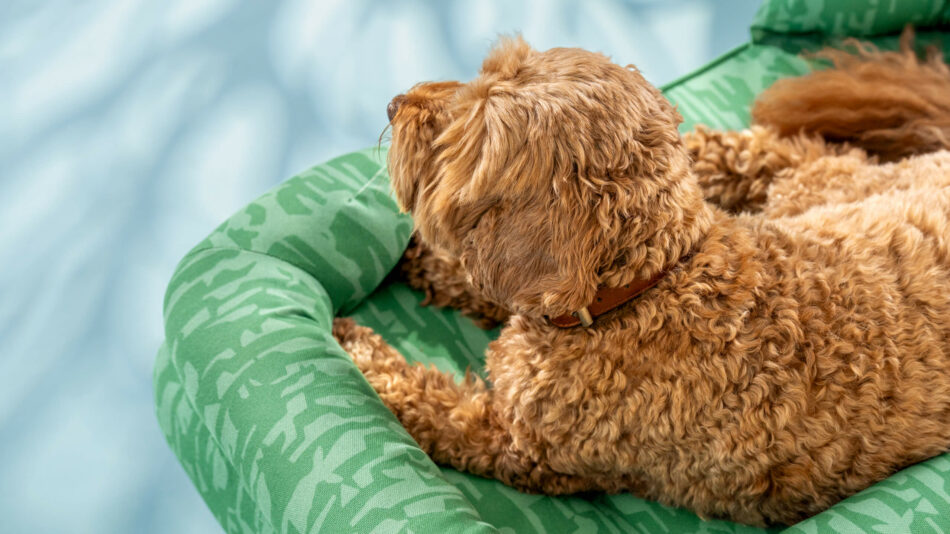Dog breeds and their personalities
If you’re thinking about adding a canine companion to your life, understanding dog breeds and their personalities is one of the best places to start. While every dog has its own unique quirks and habits, breed tendencies can tell you a lot about what to expect — from energy levels and social behaviors to trainability and space needs. Whether you’re living in a city apartment or have acreage in the country, choosing a breed that suits your lifestyle is key to a happy life for both you and your pup.
An overview of classic canine behaviors
Dogs have been domesticated and bred for centuries to perform specific tasks — retrieving, herding, guarding, or hunting to name a few — and each different breed often carries signature traits. Retrievers for example tend to be gentle and eager to please, while terriers are tenacious and quick, full of energy. Herding dogs are known for their intelligence and alertness, whereas companion breeds often thrive in closeness and affection.
That said, dogs are individuals. Just because a dog’s breed has been designed for a certain task for affinity doesn’t always mean they’ll live up to that standard. Training, environment, and early socialization all play a vital role in shaping a dog’s personality. But if you know which dog breeds were developed to do, it will give you insight on better techniques and a good sense of the temperament you’re signing up for.
Get to know these popular breeds
Below is a snapshot of ten most common breeds or varieties of dogs, and which personality traits stand out. These insights can help you find a dog that fits your family and lifestyle — or better understand the dog you already love.
Labrador Retriever
Friendly, loyal, and intelligent, Labrador Retrievers are often called the “all-rounder” of the dog world. They’re well known for good with children and their trainability, making them a top choice for families or first-time dog owners. Labs have high energy levels, requiring adequate space and regular exercise along with mental stimulation to thrive. They love water, people, and pretty much everything life throws at them.
Dachshund
Bold, curious, and a bit stubborn, the Dachshund is a long-bodied dog with short legs. Their unique appearance is both comical and endearing, but don’t let their stature fool you — they’re brave hunters at heart, originally bred to track badgers. Dachshunds are independent thinkers that form strong bonds with their owners. They might not be keen on strangers, and often don’t appreciate being over-handled, so patient and gentle training is key.
Siberian Husky
If you’re looking for a dog with personality in spades, the Siberian Husky might be your match. These striking dogs are energetic, loyal, social, and often very vocal — howling, “talking”, and singing come naturally to them. Huskies are known for being clever, but also stubborn, and need consistent training with lots of exercise. Originally bred to pull dog sleds over long distances, these dogs don’t do well in small spaces, or when left alone for long periods of time.
Border Collie
Often considered the most intelligent dog breed, Border Collies are laser-focused, quick to learn, and happiest when they have a job to do. Originally bred for herding sheep, they love structure, routine, and mental challenges. They’re affectionate with their families but can be wary of strangers. Without enough mental and physical stimulation, Border Collies can become anxious or develop behavioral issues.
Small breeds
Small dogs pack big personalities. These dogs often thrive in attentive households and prefer life indoors. They don’t require much space, making them a good choice for apartment dwellers, or for smaller homes. Here are some small breeds and their typical personality traits:
- Chihuahua — Alert, loyal, and often fiercely devoted to one person.
- Pug — sweet natured, sociable, and love to be part of the action, but can’t tolerate much exercise due to their short noses.
- Pomeranian — perky, clever, and sometimes bossy, with a surprising amount of energy for their size.
- Yorkshire Terrier — small and spunky, these dogs have luscious locks that owners love to style.
Terriers
Terriers come in many shapes and sizes — Jack Russell, Cairn, Westies — but most share key traits: they’re spirited, confident, and full of drive. Originally bred to hunt vermin, terriers are persistent, vocal, and sometimes stubborn. They need consistent training and benefit from play that satisfies their hunting instincts (like digging or scent games). Terriers do best in homes where they’re mentally engaged and physically active.
Bulldogs
Most often seen in the English and French varieties, bulldogs are affectionate and often sensitive. English Bulldogs are known for their calm, gentle disposition and make great companions for quiet homes. French Bulldogs are a bit more spirited and playful, thriving on human interaction. Neither breed is suited to heavy exercise due to the shape and length of their snout, but both enjoy short walks and quality cuddle time.
Spaniels
Cavalier King Charles Spaniels, Cocker Spaniels, and Springer Spaniels are the most popular of this group, but spaniels come in many varieties. Spaniels are affectionate, intelligent, and very people-oriented. They’re eager to please and quick to learn, making them great for first-time owners. Spaniels love attention and thrive on praise, but don’t do well when left alone for long periods. Regular walks and grooming are a must for these dogs.
Golden Retriever
Similar in many ways to their cousin the Labrador Retriever, Golden Retrievers are gentle, intelligent, and eager to please. They’re excellent family pets and usually get along well with other animals. Goldens love to play and are always ready for a walk, fetch session, or swimming. Their mellow temperament makes them popular therapy or service dogs, but they’re probably best known for their gentleness with children.
Mixed breeds
Don’t overlook the magic of mixed breeds. These dogs can inherit traits from a variety of breeds and often have more balanced temperaments. Their personalities differ depending on their lineage, but many mixed breeds are adaptable, healthy, and deeply loyal due to their complex lineage.
How to choose the right dog for you
Selecting a dog isn’t all about looks or popularity — it’s about lifestyle, expectations, and what you want in a companion. Consider the following:
- Space: Do you live in an apartment or on acreage? Smaller, lower-energy breeds like Pugs or French Bulldogs are fit for compact homes, while Huskies and Collies thrive in open spaces.
- Activity level: Are you a runner or a homebody? High-energy breeds like Border Collies or Labradors need an active lifestyle, while English Bulldogs and Cavaliers are happier lounging.
- Time commitment: Dogs require time, but some need more than others. Working breeds and puppies require more hands-on attention, while older or lower-energy dogs may need less.
- Family and other pets: Some breeds are famously family-friendly (like retrievers and spaniels), while others may not be as tolerant of young children or other animals.
If you’re still undecided, consider volunteering at a shelter or fostering before adopting a dog to get to know their breed and individual personalities. Rescue organizations can also help match you with a dog that fits your lifestyle.
Personality-based dog care basics
Once you’ve chosen your dog, their care will depend in part on their personality and breed traits:
- Exercise: High-energy dogs need daily walks, playtime, and mental challenges. Lower-energy dogs may be content with a stroll and some snuggles.
- Feeding: Diet should match your dog’s size, age, and activity level. Ask your veterinarian about a diet that’s most suitable for your dog.
- Training: Intelligent or strong-willed breeds benefit from early, consistent training and socialization. Positive reinforcement is a good dog training tactic for all breeds but is especially important for more sensitive canines.
- Grooming: Long-haired dogs require regular trips to the groomer, and should be brushed routinely. All dogs should have their nails trimmed routinely to prevent them from growing too long.
- Veterinary care: Dental cleanings, spaying and neutering, and vaccinations are all essential to your dog’s health — and all done through a veterinarian. Choose your dog’s veterinarian early on (even before bringing your dog home) and take them for their first visit shortly after bringing them home.
No matter the breed, dogs need structure, affection, and consistency to thrive.
Omlet and your dog
At Omlet, we believe every dog deserves a life as unique as their personality. That’s why we create innovative, thoughtful dog products designed to keep pups happy, healthy, and close to the people who love them. Explore our stylish dog crates, ideal for creating safe, comforting spaces in your home. And, our cozy dog beds come in a range of sizes and colors to match every breed and every decor. Whatever breed you bring home, we’re here to help you give them the best life possible.
This entry was posted in Dogs


